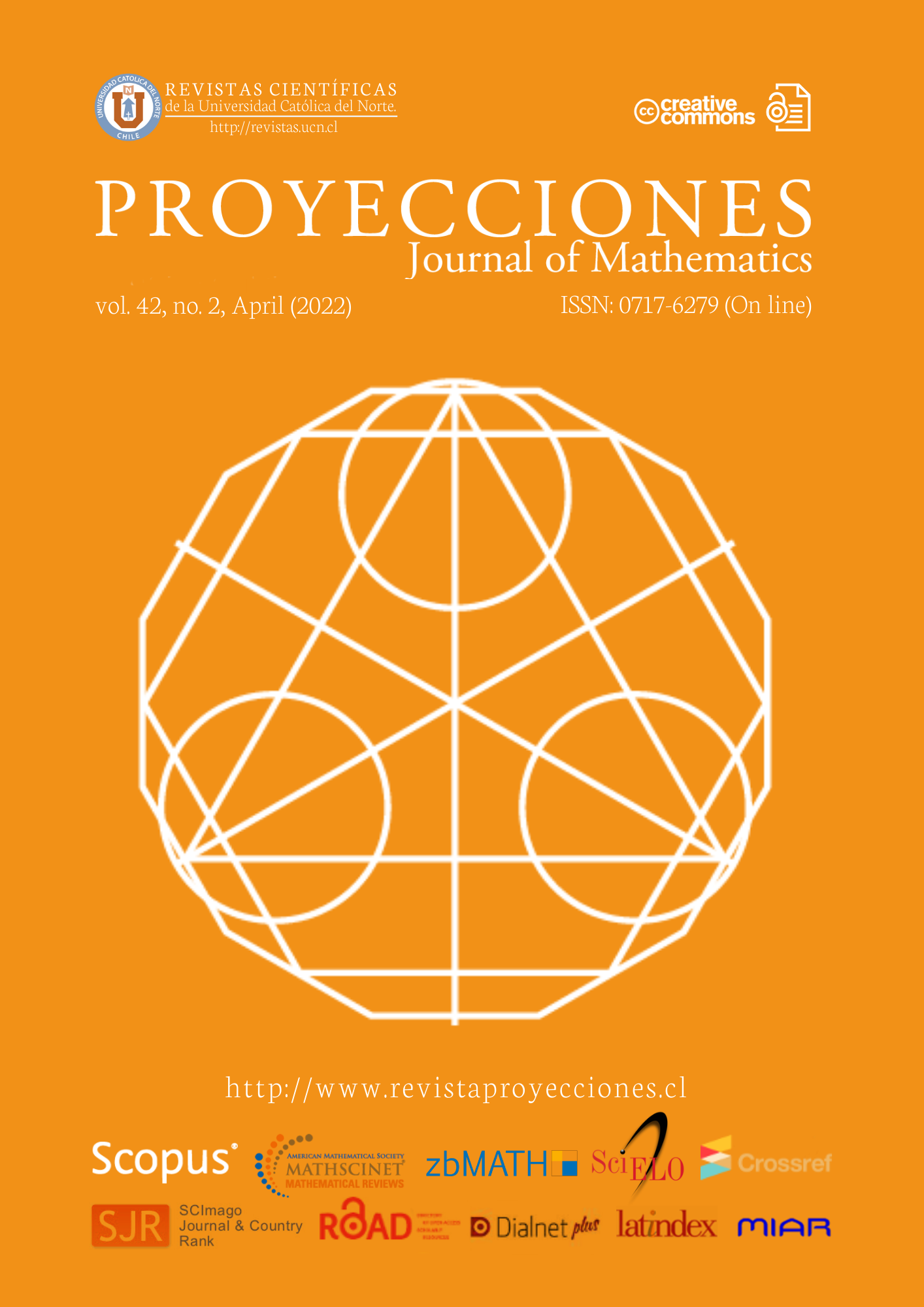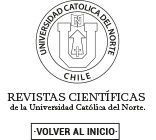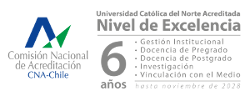On approximation of double Fourier series and its conjugate series for functions in mixed Lebesgue space Lp→,p ∈ [1,∞]2
DOI:
https://doi.org/10.22199/issn.0717-6279-5418Keywords:
summation methods, Fourier series, order of convergenceAbstract
In this paper, we study the approximation of double Fourier series and its conjugate series for functions in mixed Lebesgue space Lp, p ∈ [1,∞]2 using double Karamata Kλ,μ means.
References
A. Benedek and R. Panzone, “The space LP, with mixed norm”, Duke Mathematical Journal, vol. 28, no. 3, pp. 301-324, 1961. https://doi.org/10.1215/s0012-7094-61-02828-9
S. Lal and A. Mishra, “Approximation of function f(x, y) belonging to generalized lipschitz class by (N, Pm, Qn) method of the doublé Fourier series”, Bulletin of Mathematical Analysis and Applications, vol. 7, pp. 28-36, 2015.
B. Landon, H. Carley and R. N. Mohapatra, “Approximation by the (Kλ) means of Fourier series and conjugate series of functions in Hα,p”, Applicable Analysis and Discrete Mathematics, vol. 14, pp. 800-818, 2020.
H.K Nigam and Md Hadish, “Approximation of a function in Holder class using double Karamata (Kλμ) method”, European journal of pure and applied mathematics, vol. 13, pp. 567-578, 2020. https://doi.org/10.29020/nybg.ejpam.v13i3.3663
P. Sadangi, Degree of convergence of function in the Holder metric, Ph. D. Thesis, Utkal University, 2006.
V. Vuckovic, “The summability of Fourier series by Karamata methods”, Mathematische Zeitschrift, vol. 89, pp. 192-195, 1965.
R.G Vyas, “Convolution product of functions of generalized Wiener class”, The Mathematics Student, vol. 90, 2021. https://doi.org/10.1515/gmj-2015-0011
Published
How to Cite
Issue
Section
Copyright (c) 2023 Yogeshkumar K. Patel, Rajendra G. Vyas

This work is licensed under a Creative Commons Attribution 4.0 International License.
-
Attribution — You must give appropriate credit, provide a link to the license, and indicate if changes were made. You may do so in any reasonable manner, but not in any way that suggests the licensor endorses you or your use.
- No additional restrictions — You may not apply legal terms or technological measures that legally restrict others from doing anything the license permits.












